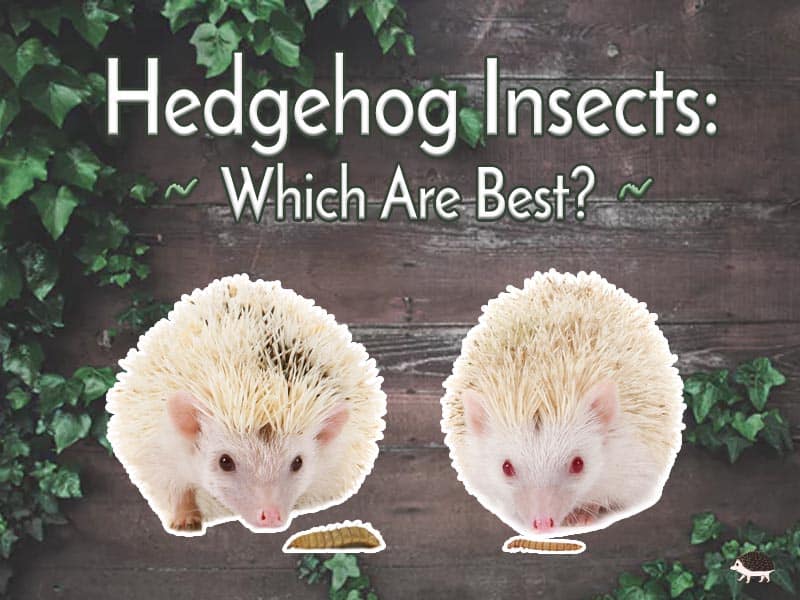Hedgehogs can eat eggs, but it should be given in moderation as a treat due to their high fat content. Hedgehogs are small spiky mammals known for their unique diet and eating habits.
While they primarily feed on insects, plants, and certain fruits, they can also consume eggs occasionally. However, it is important to note that eggs should not be a regular part of their diet as they are high in fat. Feeding eggs to hedgehogs should be done sparingly, as a treat or supplement to their main diet.
This article will explore the dietary needs of hedgehogs and provide insights into the potential risks and benefits of feeding them eggs.
Health Benefits Of Eggs For Hedgehogs
Eggs offer a protein-packed meal option for hedgehogs. They are filled with essential vitamins and minerals, making them a nutritious addition to their diet. Hedgehogs benefit from the high protein content in eggs, as it supports their growth and overall health.
Additionally, eggs provide key vitamins and minerals that hedgehogs need, such as vitamin B12 and iron. These nutrients are important for their energy levels and blood cell production. Including eggs in a hedgehog’s diet can help ensure they are getting a well-rounded nutritional intake.
However, as with any new food, it’s essential to introduce eggs gradually and monitor their digestive response. Always consult with a veterinarian to ensure that eggs are suitable for your hedgehog’s specific dietary needs.

Credit: heavenlyhedgies.com
How To Safely Feed Eggs To Hedgehogs
Hedgehogs can safely eat eggs, but there are a few important steps to follow. Start by removing the shells to prevent choking hazards. Next, cook the eggs thoroughly to eliminate the risk of bacterial infections. It is best to serve eggs in small portions, around 1-2 tablespoons, and only offer them occasionally as a treat.
By following these guidelines, you can ensure that hedgehogs can enjoy eggs without any adverse effects on their health. Keeping their diet varied and balanced is essential for their overall well-being. So, remember to consult with a veterinarian before making any significant changes to your hedgehog’s diet.
Potential Risks And Precautions When Feeding Eggs To Hedgehogs
Hedgehogs can eat eggs, but it’s important to be aware of potential risks and take precautions. Allergic reactions and sensitivities can occur in some hedgehogs, so it’s crucial to monitor their reaction when introducing eggs to their diet. Pay attention to their digestion and stool consistency to ensure they are tolerating the eggs well.
Consulting with a veterinarian is essential to understand each hedgehog’s individual needs and possible dietary adjustments. By being cautious and observant, you can provide a safe and nutritious diet for your hedgehog while including eggs as a part of their meal plan.
Alternatives To Eggs For Hedgehog Nutrition
Hedgehogs can eat eggs, but there are alternative protein sources that can be included in their diet for optimal health. In addition to eggs, hedgehogs can also consume insects, such as crickets and mealworms. These insects provide essential nutrients and are similar to the natural diet of hedgehogs in the wild.
Another option is to offer hedgehogs lean meats, like cooked chicken or turkey, as a source of protein. It is crucial to consult a veterinarian for proper dietary advice, as they can assess the specific nutritional needs of your hedgehog and guide you in creating a well-balanced diet.
By introducing a variety of protein sources into their meals, you can provide hedgehogs with a diverse and nutritious diet, promoting their overall well-being.
Fostering Healthy Eating Habits In Hedgehogs
Fostering healthy eating habits in hedgehogs includes incorporating eggs into their diverse diet. A balanced diet is crucial for overall hedgehog well-being. By monitoring and adjusting their diet as required, we can ensure they receive the essential nutrients they need.
Hedgehogs are omnivores and can consume a variety of foods, including insects, fruits, vegetables, and even eggs. Eggs provide a good source of protein for hedgehogs and can be offered as an occasional treat. However, it is important to note that eggs should be cooked and not served raw to hedgehogs.
By providing a well-rounded diet and monitoring their nutritional intake, we can promote healthy eating habits and overall wellness in our adorable hedgehog companions.
Conclusion
Hedgehogs can eat eggs in moderation and as a treat. Eggs are a good source of protein and can provide essential nutrients for hedgehogs. However, it is important to only feed them cooked eggs, as raw eggs can pose a risk of salmonella.
Additionally, it’s crucial to remember that eggs should not be the main component of a hedgehog’s diet. They should primarily consume high-quality hedgehog food that is specifically designed to meet their nutritional needs. Treats like eggs should be given sparingly and as part of a varied diet.
Overfeeding eggs can lead to imbalances in their nutritional intake and potential health problems. As with any food, it’s important to observe your hedgehog for any signs of discomfort or adverse reactions. Always consult with a veterinarian before making any significant changes to your hedgehog’s diet.
